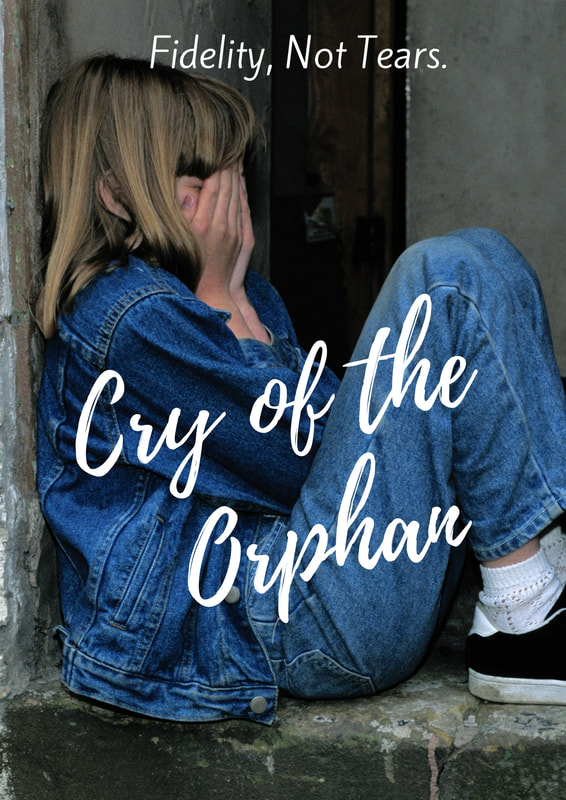Kim's Story Beyond Broken Sheep
Kim Seiberling is a Korean adoptee who grew up in rural Central Pennsylvania. Of the five children her parents raised, four of them were adopted: two domestically and two internationally. Many of her cousins are also adopted. Growing up in a home of foster and adoptive children was an experience that caused her to reflect in her adult life about the nature of God and adoption.
Despite a loving and caring home, family members suffered tragedy and loss. Kim’s older sister became estranged from the family and died from a drug related overdose, while her niece, who grew up in the foster care system was brutally murdered. This caused her to ponder how churches and families can be better equip to change some of the negative outcomes of adoptive children.
Kim’s journey led her to be an ordained Elder in the United Methodist Church and ultimately to Asbury Theological Seminary, where she was awarded a Beeson Scholarship to pursue her doctorate. Her experiences and passion led her to focus her doctoral dissertation on how local churches can fill gaps in domestic orphan care.
This dissertation opened her eyes to the gaps orphans face and how churches may better hear the cry of the orphan and meet their needs with a more faithful response.
Kim speaks to groups across the country to help them understand the church’s role in caring for the orphan and how to respond in a faithful way consistent with God’s Call as well as helping church's grow based on her ministry and coaching experience over the past 20 years.
Her own story highlights both the human tragedy when churches fail to do so and the power of when they do.
Click here to read her thoughts on Mother’s Day a few weeks after a trip to Korea.
Despite a loving and caring home, family members suffered tragedy and loss. Kim’s older sister became estranged from the family and died from a drug related overdose, while her niece, who grew up in the foster care system was brutally murdered. This caused her to ponder how churches and families can be better equip to change some of the negative outcomes of adoptive children.
Kim’s journey led her to be an ordained Elder in the United Methodist Church and ultimately to Asbury Theological Seminary, where she was awarded a Beeson Scholarship to pursue her doctorate. Her experiences and passion led her to focus her doctoral dissertation on how local churches can fill gaps in domestic orphan care.
This dissertation opened her eyes to the gaps orphans face and how churches may better hear the cry of the orphan and meet their needs with a more faithful response.
Kim speaks to groups across the country to help them understand the church’s role in caring for the orphan and how to respond in a faithful way consistent with God’s Call as well as helping church's grow based on her ministry and coaching experience over the past 20 years.
Her own story highlights both the human tragedy when churches fail to do so and the power of when they do.
Click here to read her thoughts on Mother’s Day a few weeks after a trip to Korea.
Cry of the OrphanThe Old Testament mandate to care for the orphan has been a long standing tradition throughout scripture as will as a ministry in churches. Historically, churches expressed their care of needy children in the form of soup kitchens and children’s homes.
A recent trend of adoption swept the United States and the Christian community, but unfortunately, domestically, many children remain in need of permanent families. These are children who are believed to be unadoptable because of physical disabilities, race, gender, mental health issues, or being part of a sibling group. The Cry of the Orphan is a study which identified a select set of churches and organizations who appeared to be responding in a fidelitious way to the orphan care gaps and assessed their effectiveness. This model can help outline a potential path for obtaining a faithful response to the cry of the orphan for help while avoiding potentially harming the child. In the end, the future of the orphan care movement amongst Christians depends upon the successful expansion of churches to care for these children and finding specific solutions to gaps through partnering with other non-profit and governmental agencies. |
What should be the church's response to orphans?Kim speaks to groups across the country to help them understand the church’s role in caring for the orphan and how to respond in a faithful way consistent with God’s Call.
Her own story highlights both the human tragedy when churches fail to do so and the power of when they do. |
|
Coaching and Training to Engage with Vulnerable Children
Are you ready to take the next steps to care for the orphan in your church ministry or organization? Kim works with churches, districts and conferences as well as non-profit organizations to engage in meeting the needs of orphans and to do so in a faithful way.
Kim will meet with your organization to help identify your organizations specific needs and strengths and build a custom approach to help your organization move forward in this critical work. This can take many forms from helping a church understand the issues orphans face, to developing unique strategies that fit the church’s abilities, or helping to implement a program that engaging the church for the long-term.
No matter what the approach, she is with you every step of the way to ensure success in this important work.
Kim will meet with your organization to help identify your organizations specific needs and strengths and build a custom approach to help your organization move forward in this critical work. This can take many forms from helping a church understand the issues orphans face, to developing unique strategies that fit the church’s abilities, or helping to implement a program that engaging the church for the long-term.
No matter what the approach, she is with you every step of the way to ensure success in this important work.
Engage the ChurchHow can the church meaningfully engage in filling the gaps in orphan care?
As a United Methodist Pastor, Kim understands the dynamics of the local church and what it means to take on an effort to care for orphans in your local community. She can engage with your leaders launching new or leading existing orphan care ministries to understand the theological response to the orphan, help craft specific strategies that can engage the heart of the church and provide the best chance of success.
|
Immersive TrainingHow can we truly understand the needs of orphans?
As an educator and Pastor, Kim has developed immersive training and simulations to allow others not just sympathize with the plight of the orphan, but truly empathize with what the think, feel and need. This is critical to building a faithful response. Kim will work with your specific organization to create tailored training for your needs and help your organization implement it.
|
CoachingHow can we ensure our church orphan care program sticks?
Change is hard. Churches and non-profits have constant demands on their time and resources on a number of “good programs.” As a successful pastor and church leader for the past 17 years, Kim has learned how to make changes “stick” in the local church and broader organizations. To make sure your are successful, Kim can provide ongoing coaching and consulting to help ministries overcome challenges that face any program, design specific strategies to improve effectiveness and provide the support needed to ensure success.
|




